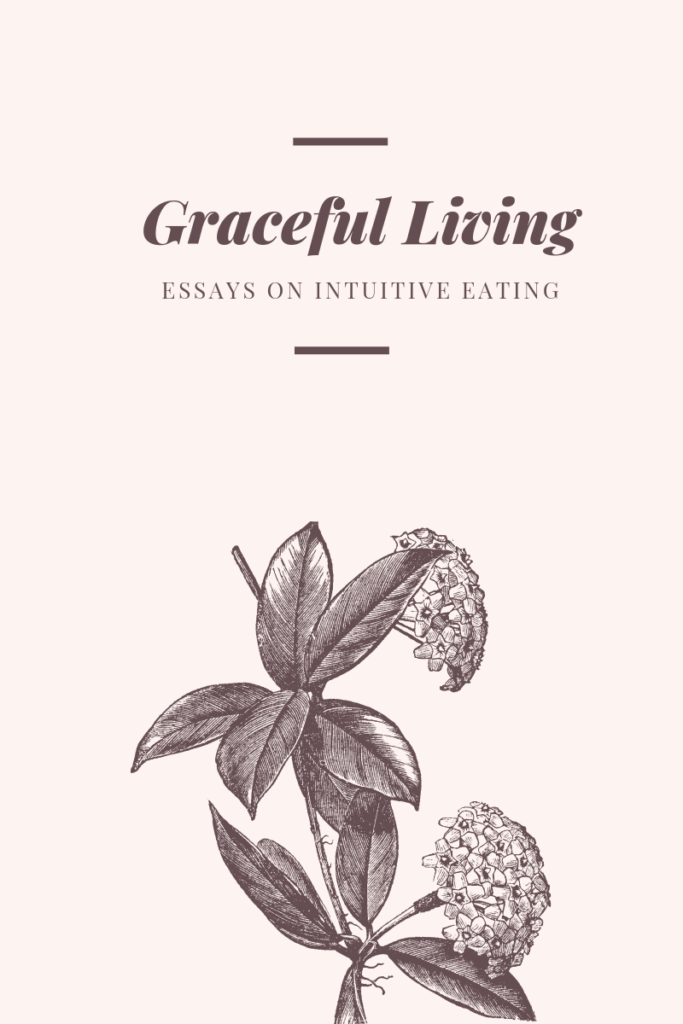In 2011 I began writing about intuitive eating. I wrote to process and to heal after living with disordered eating for nearly ten years. In many ways, intuitive eating saved me from myself. Most importantly, intuitive eating taught me to listen to myself and to acknowledge a quiet voice that whispered, “You are enough.” I wrote these essays for myself, but knowing how deeply rooted issues of weight are with feelings of identity and belonging, I decided to publish them here in hopes of helping others navigate the road back to oneself. (Read Part 1, Part 2, Part 3, and Part 4)
I know this much is true: it is very hard to say no.
Dozens of people have written about the art of saying no, perhaps because it’s both hard to do yet utterly necessary for one’s sense of balance.
In the process of learning how to eat intuitively, I think often about honoring my hunger and fullness. It seems that the most difficult part of not bingeing is saying no. There is always a point, when I’m emotionally eating, that I hear a gentle voice inside of me saying, “No, you really don’t want that. You’re feeling full as is, and eating that will only set you over the top.”
Yet, me being the person I am, I tend to listen to the rebellious voice that coexists with my inner voice, the one that says, “Whatever, screw you, I don’t care. I’ll eat what I want to eat.”
Evelyn Trible and Elyse Resch, authors of the book Intuitive Eating, call this voice the Diet Rebel. Trible and Resch write that the Diet Rebel was born out the need to reject space invading influences (100).
The truth is: I am a grown up, living on my own, without anyone monitoring what I put in my mouth. However, my Diet Rebel still exists, operating on the motto: “I do what I want.” Which makes me think that this Diet Rebel is actually responding to all of the people who want something from me.
And that’s where saying no comes into play.
Elizabeth Gilbert recently wrote an article for the December 2011 issue of O Magazine about her tendency to over-give. In it she writes about paying off friends’ debts, buying them cars and houses and generally spending much more on her friends than they could ever spend in return.
Even though I don’t have millions of dollars with which to pay off friends’ mortgages (I don’t even have a mortgage of my own), I, like so many women, tend to over-give. I give too much of my time, money and talents, and most importantly I often over-give for the wrong reasons.
I’m not just wanting to be helpful, I’m wanting instead to be praised, valued, accepted, and loved. Beyond what it does to the person on the receiving end, this over-giving, this inability to say no, has the potential to do long-term damage to our spirits.
Last night I was washing dishes and broke one of M’s glasses. (M has a very large collection of glasses of all shapes and sizes, for a myriad of alcoholic and non-alcoholic drinks. Each one has a story and a purpose.)
I waited a while to tell M about the broken glass. He was sitting in his leather arm chair, reading a book. Like a child I climbed into his lap and told him about the broken glass.
He immediately asked, “Are you hurt? Did you cut yourself?”
“Well no,” I replied.
“Good. As long as you’re okay that’s all that matters to me.”
“Really?” I asked, wide eyed. “You’re not mad?”
“No, of course not. I think you’re being too hard on yourself. It’s just a glass.”
That, my friends, is grace. I had broken one (okay, that now makes two) of his prized possessions and he had given me what I needed–love and forgiveness.
It shouldn’t take someone else to remind us that our worth is a fixed value beyond our actions. By practicing the art of saying no, we too can give ourselves the grace we deserve.
Since focusing on saying no, I have cut my commitments in half. I have begun to say no, left and right, no matter how strongly it goes against my sense of duty and obligation. It’s been easier to do so because I’ve now begun to find a new obligation, a new call. And this one comes from the very depth of my being. This voice has no need to rebel because it doesn’t answer to society, to friends with too-big asks, or to my Diet Rebel’s voice.
Saying no to others’ requests has opened up a new space in my life. Now that I’m not running from job to job like a crazy lady I actually have time to ask myself, “What do you need? What is it that you truly want?”
When I said no to one invitation on a Friday, I felt a freedom I wasn’t accustomed to feeling. As a result I didn’t hear the Diet Rebel, I didn’t want to overeat. I had valued myself by saying no, which made it easy to value myself through my food choices that day.
Today while getting ready to eat lunch, I asked M for a glass. He opened up the cabinet, and stared at all of the glasses. Finally, he jokingly pulled out the only plastic cup he owns.
Sometimes, when you learn to say no, you discover what you really want. And sometimes, what you discover is that “you can’t always get what you want, but you get what you need.”

